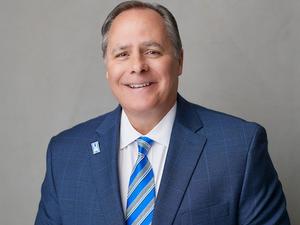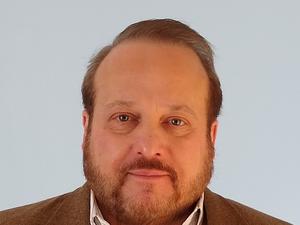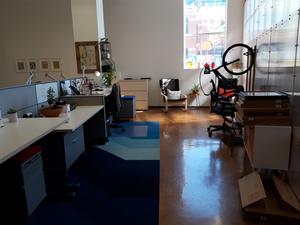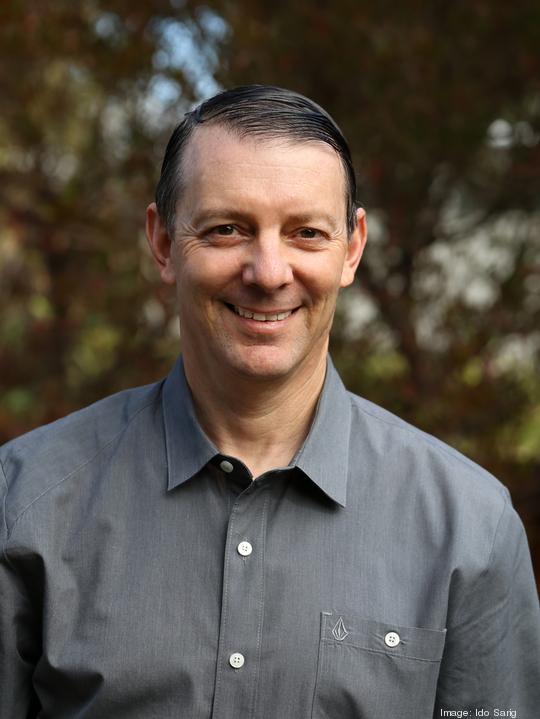
Initially, the San Francisco-based Alchemist Accelerator wasn’t planning to establish a location in Memphis. Instead, it was going to work with Epicenter to put together an accelerator that condensed its signature six-month program into four weeks or 12 weeks.
But the more Alchemist’s leaders talked to the teams at Epicenter and Ridgeline — the local VC firm with a $52 million fund — the more they were intrigued by the city. And they realized they wanted to do more than just run a co-branded accelerator here. They wanted to be here. They wanted to be full-fledged partners with Epicenter and be actively involved in Memphis’ startup ecosystem.
Now, in partnership with Epicenter, Alchemist is launching the Memphis Hub Accelerator Program, its first U.S. location outside of Silicon Valley and third location overall. Ido Sarig, an experienced early-stage startup mentor and coach, is moving to Memphis to become the Hub’s managing director; and Alchemist’s presence here could bring big benefits to not just the area’s startups, but the entire city.
“There's such a high concentration of investment and expertise in Silicon Valley, and for good reason,” said Jessica Taveau, president and CEO of Epicenter. “But being able to democratize that access and bring that network to Memphis — where that access has not previously been easy, visible, or understood — is a game changer.”
Here’s a breakdown of what Alchemist plans to do in Memphis — and how it could change the game.
'The Silicon Valley gloss'
Alchemist runs a six-month, equity-based accelerator for early-stage startups that “monetize from enterprise,” which essentially means they earn their revenue from businesses and not consumers. Each year, three classes of 20 to 30 startups go through the accelerator. The Memphis Hub Accelerator Program is set to streamline access to the accelerator for startups based in Memphis, or startups interested in relocating to the area. It will recruit and reserve space for three Memphis-based startups per class, bringing the total number of reserved spots to nine per year.
But just what does the accelerator do for participating startups?
“We're good at democratizing access to Silicon Valley techniques and investor networks,” said Rachel Chalmers, president of Alchemist Accelerator. “We're good at taking technical and highly able founders who are not connected to that network and giving them the Silicon Valley gloss so that they can [have success] in that community.”
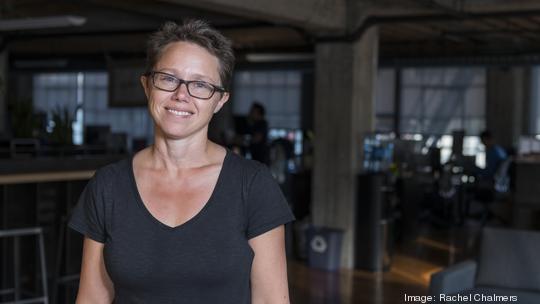
Though the Alchemist Accelerator is predominantly virtual — startups from all over the world participate — the Memphis Hub startups that are accepted into it are set to regularly come together in-person and have the option to work out of Epicenter’s office Downtown. They’ll also receive specialized programming that focuses on sectors particularly relevant to the Mid-South and have the chance to engage with key players in the local startup ecosystem, like Ridgeline.
And those are just the benefits specific to the Memphis Hub’s participants. Like the rest of the startups enrolled in the accelerator, they’ll receive an array of resources that aren’t as common outside of Silicon Valley. They’ll engage in customer and investor feedback summits and have monthly board meetings. They’ll receive one-on-one mentoring from high-caliber sales and CEO coaches.
“They have a massive network of mentors,” said Andrew McMahon, a partner with Ridgeline and mentor with Alchemist. “They’re unbelievable people who are really, really valuable to a [startup] founder at an early stage.”
'Talent is everywhere; opportunity is not'
Participating startups are also introduced to customer and investor prospects, with the accelerator culminating at an in-person Demo Day in San Francisco — where they can pitch their business to more than 500 high-profile investors and potential corporate partners.
Alchemist’s access to major investors — and its understanding of how to interact with them — is something it prides itself on. In 2016, a study done by the investment research firm CB Insights ranked Alchemist as the top accelerator, based on the median funding rates of its graduates.
“We build into the program many opportunities for startups to meet and socialize and start building relationships with investors, because many of the best investments are relationship deals where an investor has watched a startup company create a hypothesis, create goals to test that hypothesis, and blow through those goals,” Chalmers said. “And that's the point at which an investor wants to come in and say, ‘Yeah, I have high conviction I want to invest now.’”
The focus on investment will likely be welcome in Memphis, where raising seed funding hasn’t always been easy — and the plentiful West Coast funds have often seemed out of reach. This is something Alchemist wants to change.
“I was reviewing the pitches of the current cohort, and one of the companies there who's based out of Africa had in their slides, ‘Talent is everywhere; opportunity is not,’” Sarig said. “And I think that applies equally well to the situation in Memphis. There's certainly a lot of talent there. And we hope to bring some of the opportunities, the best practices, and the access to capital that Silicon Valley accelerators can bring to the table.”
All of this, of course, begs the question: Why did Alchemist choose Memphis for its second U.S. location?
The best way to grow companies
As sleek and alluring as Silicon Valley might seem, it doesn’t have the answers for everything.
“You might think that Silicon Valley has the ecosystem to support any kind of company, and you're probably not too far off,” Sarig said. “But you also are not exactly right.”
Take, for example, a startup developing an autonomous drone for last-mile delivery.
“To be honest, there isn't a deep pool of talent in Silicon Valley that has experience in the logistical aspect of that,” Sarig explained. “There might be very good engineers who would help you build the drone and build the control system and so on. But they don't understand logistics.”
Memphis, on the other hand, is the home of FedEx. It’s a supply chain and logistics hub and an ideal location for startups focused on these areas.
“If you think about [those] who do understand logistics, it's FedEx, it's AutoZone,” Sarig said. “And our experience has shown that the best way to grow companies is by locating them in areas where they have the ecosystem that can support them.”
That’s not to say Alchemist will exclusively accept startups from the Bluff City focused on supply chain and logistics. When MBJ asked what types of Memphis-based companies they were looking to bring into the program, Sarig noted connected mobility, logistics, supply chain, and health care as areas of interest. But he also said other types of startups that monetize from enterprise could be accepted into the program, explaining that "all are welcome."
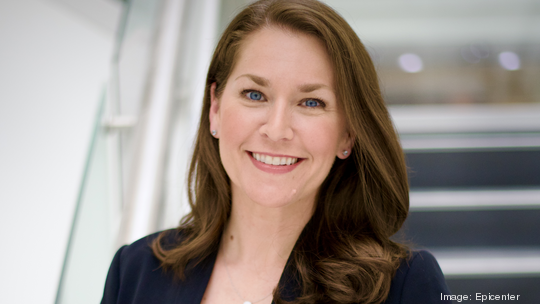
And Memphis’ status as a logistics and shipping staple wasn’t the only factor that helped it get selected.
Memphis is a predominantly Black city; and historically, minority-owned businesses haven’t had access to the same resources as white-owned ones. But Alchemist plans to actively recruit founders from underrepresented groups, and it’s created an underrepresented minority advisory board, comprised of startup coaches and founders from underrepresented backgrounds.
“[This was done] to make sure that founders' needs are heard, that they get extra support,” Chalmers said, “That they're just not thrown into the white investment community in Silicon Valley and expected to sink or swim, but that we're giving them access to Black and Latinx investor networks alongside the introductions to our regular investor community.”
For Epicenter, this was also an important factor when it chose to partner with Alchemist.
“We work really hard to ensure the entrepreneurial community represents our majority Black city,” Taveau said. “So, really sharing those values and that intentionality behind the program with Alchemist was important to us — and a key piece of this partnership."
Alchemist Accelerator's next two cohorts will start in April and August 2023 and applications are accepted on a rolling basis. Companies interested in applying to the Memphis Hub Accelerator Program should click here.
